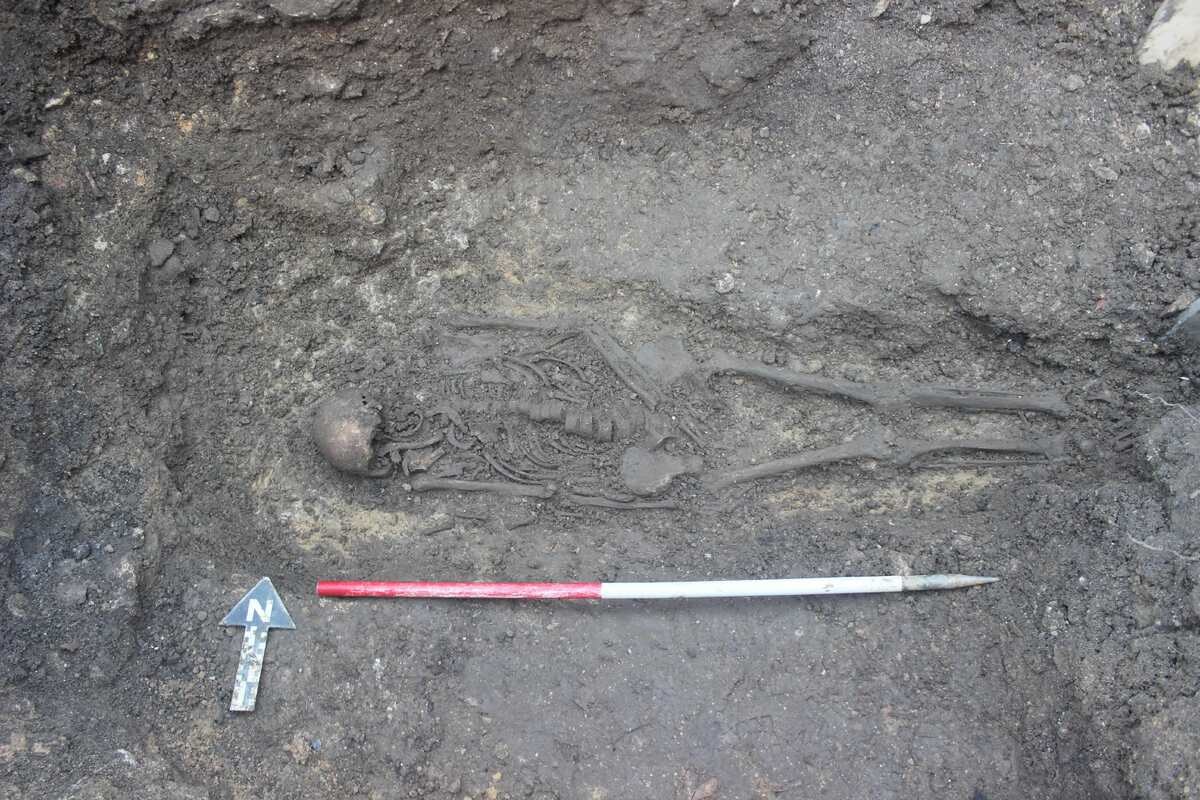Archaeologists have discovered an Anglo-Saxon cemetery in the grounds of the Old Bell Hotel in Malmesbury, England.
The Old Bell Hotel is located adjacent to Malmesbury Abbey, a former Benedictine abbey dedicated to Saint Peter and Saint Paul.
The Abbey was founded around AD 676 by the scholar-poet Aldhelm, and holds the burials of Máel Dub, who established the first monastic community in Malmesbury, and Æthelstan, often considered the first king of England. It may also have been where the Anglo-Saxon poem Beowulf was transcribed.
Malmesbury Abbey emerged as a leading centre of academic learning and scholarship under the rule of abbots such as Aldhelm, John Scotus Eriugena, Alfred of Malmesbury and Aelfric of Eynsham.
Excavations are part of the Big Athelstan Dig, a community archaeology event celebrating the 1100th anniversary of Æthelstan’s crowning.
The cemetery includes the skeletal remains of 24 individuals that date from between AD 670 and 940, providing a unique insight into the people that supported the early monastic community during the abbey’s “golden age”.
According to the researchers, the cemetery contains the burials of adults and adolescents, in addition to associated grave goods. The discovery confirms that an Anglo-Saxon settlement predates the construction of the abbey.
Paolo Guarino, Assistant Publications Manager and Malmesbury resident, said: “We knew from historical sources that the monastery was founded in that period, but we never had solid evidence before this excavation. The discovery includes remains from the Middle Saxon period, marking the first confirmed evidence of 7th to 9th century activity in Malmesbury.”
Owners of the Old Bell Hotel, Kim and Whit Hanks, said: “We are honoured to act as stewards of local history, a responsibility we take very seriously. This exciting discovery intertwines history with the present, providing a rare insight into the lives of Middle Saxon period Malmesbury residents.”
Header Image Credit : Cotswold Archaeology
Sources : Cotswold Archaeology





